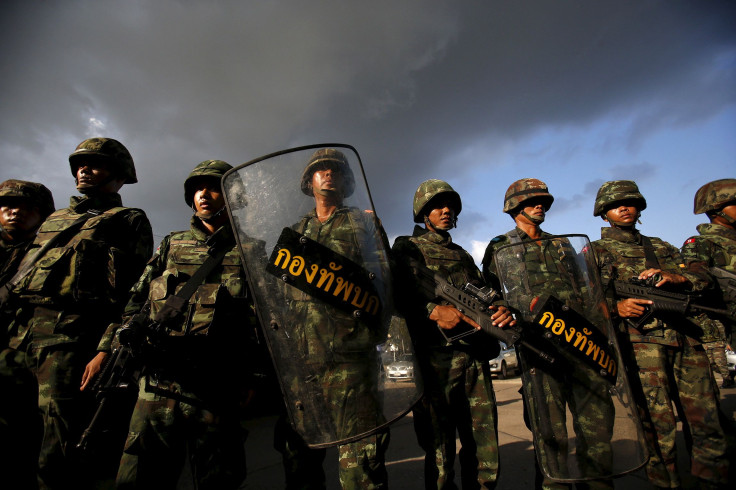Thailand Rejects New Draft Constitution, Likely Leading To Delays In Path Toward Democracy

Thailand's military-backed legislature rejected a new draft constitution Sunday, which will likely mean that the first elections to be held since the military siezed power last year will be delayed until at least 2017.
One of the most contentious aspects of proposed constitution was the National Strategic Reform Committee, a so-called "crisis panel," which would empower a 22-person group, including the prime minister, and senior police and military leaders, to seize legislative and executive power during times of crisis.
The Thai military forbade public debate on the document. Political parties were permitted to hold press conferences to discuss it, but not campaign for or against it.
The Associated Press reported that the proposal was widely opposed by Thai political parties and risked being voted down by the public if it was put to a referendum.
“This charter totally disregards the sovereignty of the Thai people," said the Pheu Thai party in a statement, cited by the BBC, whose government was deposed by last year's military coup. "Many provisions are contrary to international democratic principles and the rule of law."
Even some members of the body which drafted the proposed constitution, the Constitution Drafting Committee, admitted that its democratic shortcomings. "You may call it not fully democratic," General Lertrat Ratanavanich told Deutsche Welle.
A new committee will now be appointed with a mandate to write a new constitution within 180 days. Any future constitution will need to ab approved by both lawmakers and the electorate, meaning in that elections are unlikely to be held until 2017 at the earliest.
Since absolute rule by the monarchy in Thailand was abolished in 1932, there have been 19 coups in Thailand, including last year's. Twelve of the coups have succeeded in overthrowing the government.
Thailand's military seized power in the country last year, after a months-long political crisis, prompted by a long-running conflict between the mostly rural supporters of former Prime Minister Thaksin Shinawatra and his sister Yingluck, who was also Prime Minister, and wealthier, mostly urban voters, opposed to the pair's populist policies.
© Copyright IBTimes 2024. All rights reserved.






















